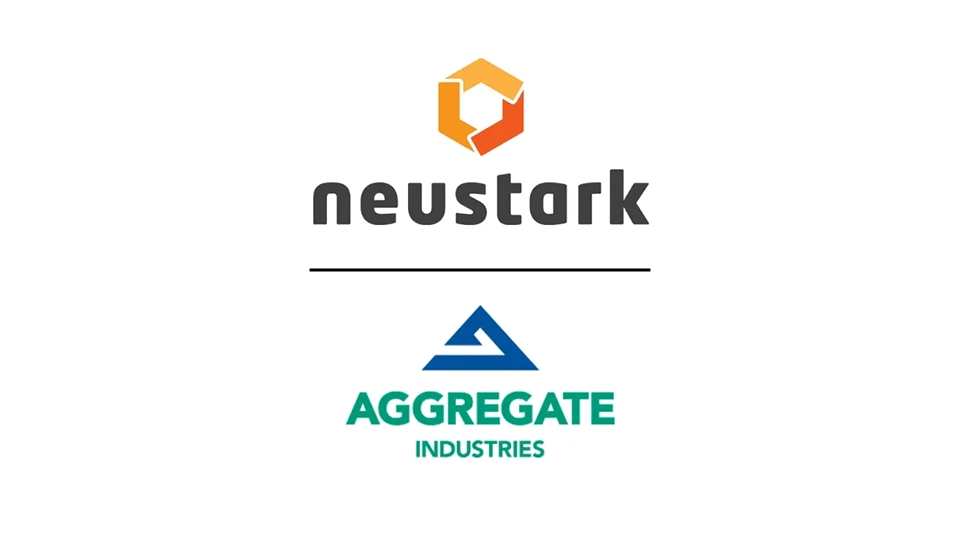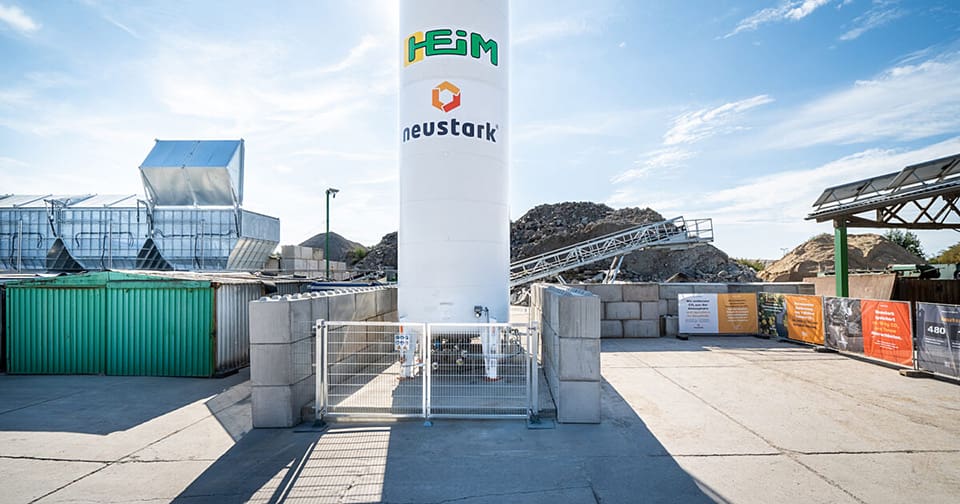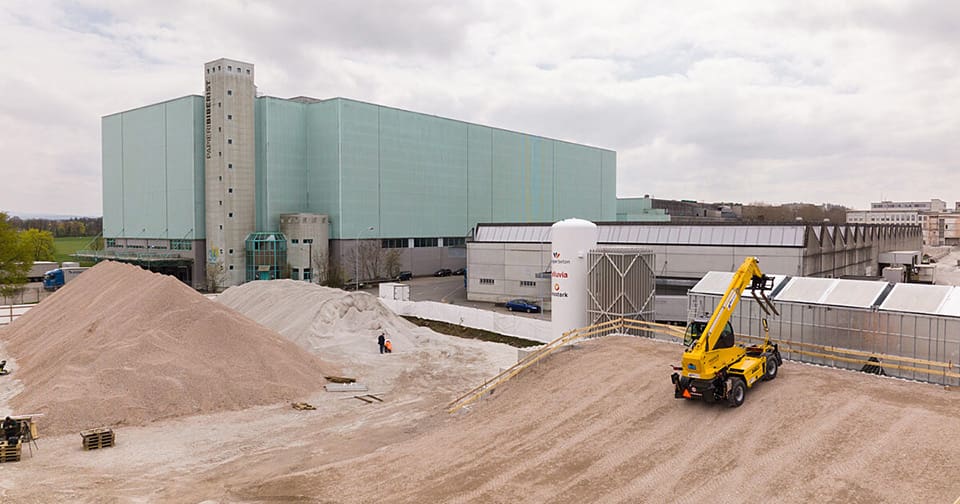


Neustark, a Switzerland-based carbon removal specialist, and United Kingdom-based building materials supplier, Aggregate Industries, are introducing a new technology that permanently removes carbon from the atmosphere and locks it into recycled concrete.
The first site went into operation on November 4th in Greenwich, London and will now permanently remove carbon dioxide (CO₂) in the coming months and support building projects in the local area. The site will be able to permanently store and remove 1102 tons (1000 tonnes) of CO₂ (net) per year. According to Neustark, this is the equivalent of the carbon sequestered by over 16,000 tree seedlings grown for 10 years.


This is the first venture into the UK market for the Swiss cleantech start-up, which has already established 19 carbon capture and storage sites deployed in Europe to date. According to Neustark, the site is one of the first commercially and ecologically viable solutions for permanent, onshore carbon removal in the UK.
Neustark’s innovative technology and business model captures CO₂ from biomass sites, liquefies it, then injects it into existing mineral waste streams such as demolished materials to be recycled and used in construction. This utilizes a process of mineralization that stores the CO₂ in the aggregate, permanently removing it from the atmosphere and creating carbonated, recycled building materials such as concrete.
As a supplier of materials and solutions to the construction industry and a player in the development of UK’s infrastructure, buildings and homes, Aggregate Industries has partnered with Neustark to accelerate green growth and to provide sustainable products to its customers. Aggregate Industries is part of the global Holcim Group.
The building and construction industry was estimated to account for 37% of global carbon emissions, 7% coming from the production of cement alone. This is according to a 2023 report published by the United Nations Environment Project (UNEP). While there have been efforts from the industry to decarbonize, the UK Green Building Council warned that the UK construction industry was ‘significantly off-track’ on its net zero goals at the end of last year indicating that decarbonization rates would need to double in the coming years.
By using the carbon removal process of mineralization, Neustark and Aggregate Industries can support increased decarbonization in the construction sector by turning demolished concrete, the world’s largest waste stream, into a carbon sink. According to Neustark, each tonne of demolished concrete can store an average of 22 pounds (10 kg) of CO₂.
The UK government signaled clear support for carbon capture and storage (CCS) technology by announcing a pledge of US$28 billion in funding last month. However, the focus of this investment is currently on CCS, a less permanent management approach to carbon emissions, in comparison to Neustark’s CO₂ removal (CDR) technology. The government initiative is also tasked with building out regional technology ‘clusters’ for the development of the industry.
“We have already deployed 19 sites in Central Europe that capture and remove thousands of tons of CO₂. By extending our relationship with Holcim and partnering with Aggregate Industries, we are now bringing this revolutionary technology to the UK,” said Valentin Gutknecht, chief executive officer and co-founder of Neustark. “The UK is an ideal market for us as it has a mature supply chain and the infrastructure we need to remove CO₂ at scale. The government is supportive of building a competitive carbon market and shifting the industry away from early-stage developments to a competitive commercial set-up. But there is not enough focus on carbon removal, or consideration of how carbon removal can be embedded into existing supply chains and industries beyond oil and gas rather than always requiring extensive new infrastructure. This partnership is proof that collaboration between a cleantech start-up and global leader in building solutions can create tangible climate impact today. The rest of the construction industry should follow suit and we need to look at other applicable industries too.”
“Our partnership with Neustark takes the battle to reduce carbon emissions in the construction industry to the next level. Together, we can remove carbon from the atmosphere and permanently lock it into recycled concrete, which can be used again in new construction projects,” said Lee Sleight, chief executive officer of Aggregate Industries UK. “We are excited to get this technology set up in London, where there is direct access to a huge supply of demolished concrete. And this isn’t just carbon removal, it’s a reinforcement of a circular economy enabling the reuse of a major waste stream. Once fully operational, we believe other contractors and specifiers will adopt this technology as well, accelerating their own decarbonizations journeys. Together, we can drive towards our net zero goals.”


Unlike other carbon removal technology, Neustark is actually removing CO₂ now and has already removed over 2756 tons (2500 tonnes) of CO₂ from the Earth’s atmosphere since it launched commercially in 2023. The start-up’s strategic partnership with Holcim Group has resulted in the launch of first carbon removal sites in Switzerland, with others currently being built across Europe. The business is on track for rapid expansion across Europe. Building on its existing 19 sites in Europe, the business plans to bring online approximately 40 additional sites in the coming months and throughout 2025 in the region.